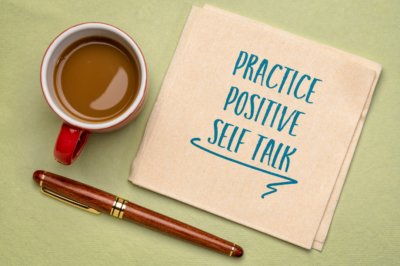
An Inferiority Complex is a feeling that one is lesser than others in some way. When someone struggles with an inferiority complex, their inner world is a dark place swirling with anger, regret, shame, guilt, criticism and bitterness. Their inner critic is hard at work, shredding every dream or aspiration. In their minds, every living being on this planet is better, smarter, and generally perfect at everything.
There are many reasons why adults and children feel like they aren’t “good enough”.
How many of us have been told by our parents that we won’t succeed in life if we don’t study hard, or had an elder tell us if we don’t get into a prestigious university or get the appropriate degree, we won’t get a good job? Do you remember how that made you feel? Have you ever felt guilty or responsible after a breakup? Do you feel crushed when your colleague gets a promotion and you don’t? Do you feel like a failure when your boss praises someone else but not you? If you answered Yes to all the questions and felt feelings of inadequacy and insecurity, then you experienced a sense of inferiority.
Complex Inner World
James E. Maddux, Ph.D., psychologist and author, explains that inferiority complex is an old-fashioned term for chronic low self-esteem. ‘You call yourself names, lament your shortcomings, and believe that your intense self-criticism is reasonable. Just when your self-esteem is most fragile, you attack it even further. This cycle is so deeply rooted that it consistently holds you back personally and professionally.’
The main reason we behave this way is the fear of standing out and being different because we believe that the world is so unforgiving. We would rather crush our dreams than bear the possibility of being ridiculed.
Let’s face it. Everyone is inferior to someone else in some way. It could be a skill, appearance, status, class, or even education level. These feelings of inferiority arise from our interpretations of situations, not facts. If we are trying to fit into a mould or live up to other people’s standards, we are setting ourselves up for disappointment.
Blaming luck or genes for our failures is a defeatist attitude. Our elders did the best they could within their understanding, and we cannot hold them responsible for how we feel today. It is time to take charge of our own minds and learn to value the self. Instead of focusing on the negatives and the psychological baggage, we can focus on our skills and strengths.

Small steps lead to big changes. Here are some suggestions to get you on the road to recognising your worth.
First step to change – Take stock of your skills, aptitudes, personality traits, history and experiences. What do you have that nobody else does? In what ways are you your own unique self, in a way that no one else can be? What opinions, interests, passions and values have you followed throughout life, no matter what? These answers are like gold. It describes, essentially, what makes you, well, you. These are the foundations on which to build and cultivate other skills.
Second step to change – If you are the type who wants to say Yes to everyone, recognise that you are offering your time and energy to others. Saying No once in a while means you are setting boundaries. You are giving others a chance to value your time and energy. Once in a while, learn to say No – at first, you might feel a sense of guilt, but after a few times, it will become easier.
Third step to change – Build the courage to be disliked and rejected. Not everyone is going to like everything about you and, people will judge you. That’s okay. We accept that as part of the uniqueness of human nature and personality. There will be failed attempts when pursuing dreams and goals. Let that not hinder your progress or your willingness to try something again. If no one praises you or your efforts, praise yourself for a job well done.
An inferiority complex will challenge your views about your self-worth. The responsibility lies with you to change the thoughts that destroy your self-esteem. Remember that you are not alone in feeling this, and every small step you take towards thinking more positively will make a difference. Confront your fears, recognise that an unfair comparison with others will only make you feel worse. Focus on your capabilities instead of your perceived shortcomings. The transformative journey toward self-acceptance and inner harmony starts with you and you alone.

Shobha Nihalani
Shobha Nihalani is a multi-genre author, ghost-writer, and book writing coach. She has
been writing for over 25 years. Her recent book “Self-Esteem in a Selfie World” – has become popular and is recognised for raising awareness on self-esteem.
Shobha believes that the way we communicate with ourselves and others has the
power to impact our lives. Her expertise as a writing coach and consultant has given
her the opportunity to guide people to write their stories and to turn their dreams of writing their books into reality.
Contact her at shobhanovels@gmail.com

Thank you for the encouragement, Shobha!